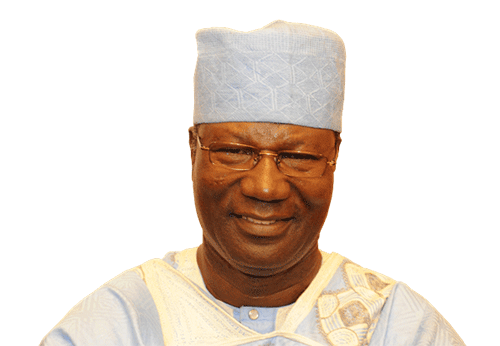Dr Moses Amweelo
The youth constitute the largest population in the world, about 1.8 billion. The greatest percentage of these youth is found in developing countries where they constitute the greater proportion of the population.
Despite constituting the greatest population, youth are often left behind in decision-making processes and development programmes, yet they are the most affected.
In Africa, youth are often found facing several challenges like unemployment, exclusion from policy-making and economic ecosystems amid staying in an environment where there is no equality in accessing resources.
The situation is worsened by the impacts of climate change, which has resulted in agriculture the backbone of the family and national economy becoming unviable due to water stress.
Young people have the potential to be effective agents of change. But unless the need is acknowledged to provide an enabling environment for youth to thrive in, this remains an empty promise to the desperate yet capable young people. This transition of youth from a target group to a full partner lacks traction in many fields of the development domain.
Engaging youth in all sectors is deemed challenging yet it is a necessary step to take, to bring about change and positive development towards achieving the United Nations Agenda 2030. Human activities, such as the use of fossil fuels, deforestation and unsustainable agriculture contribute to climate change, which decreases the availability of nutritious food and clean water and destroys ecosystems and secure living environments.
This leads to malnutrition, ill health and migration, rendering youth particularly vulnerable.
At the same time, youth constitute the majority of the population in many countries and have an increasingly strong social and environmental awareness, which has the power to transform our societies towards a low-carbon and climate-resilient future. The United Nations System recognizes the key role that youth play in tackling climate change and works closely with youth-led and youth-focused organizations around the world through the United Nations Joint Framework Initiatives on Children, Youth and Climate Change (Joint Framework Initiative).
Since 2008 the Joint Framework Initiative has been coordinating efforts by sixteen intergovernmental entities and many youth organizations to empower youth to take adaptation and mitigation actions and enhance effective participation of youth in climate change policy decision-making processes.
The United Nations Development Programme (UNDP) implements the Global Environment Facility’s Small Grants Programme, which provides funding for projects on mitigation or adaptation to climate change proposed by youth organizations or non-governmental organizations that work with youth.
The United Nations Framework Convention on Climate Change (UNFCCC) secretariat coordinates the work of the Joint Framework Initiative. It also works closely with the rapidly expanding UNFCCC observer constituency of youth non-governmental organizations (YOUNGO) to support the substantive engagement of youth in the intergovernmental climate change process through the organization of high-level briefings with decision-makers, capacity-building events for youth organizations, the facilitation of youth participation from developing countries and virtual participation of youth around the world who cannot attend UNFCCC conferences.
In response to the growing number of engaged youth organizations in the intergovernmental climate change process, in 2009, the UNFCCC extended a constituency status to admitted youth Non-Governmental Organizations (NGOs) allowing them to receive official information, participate in meetings, request speaking slots and receive logistical support at UNFCCC conferences. In only four years YOUNGO has developed into a vibrant network of youth activists, through which youth make their voices heard and actively contribute to shaping the intergovernmental climate change policies.
At UNFCCC conferences, YOUNGO makes official statements, provides technical and policy inputs to negotiation groups, engages with decision-makers through high-level meetings and in informal settings and raises awareness through various advocacy activities.
Youth participation has brought moral, intergenerational and equity-based values as well as constructive technical and policy inputs to the negotiations. Back in their home countries and communities, youth are acting on climate change mitigation and adaptation.
Diverse initiatives include educational, awareness-raising and behavioural change campaigns.
Youth also engage in climate change projects within different national and international organizations. Over 10,000 youth have already completed the climate change challenge badge developed by the Food and Agriculture Organization (FAO), the World Association of Girl Guides and Girl Scouts and the Youth and United Nations Global Alliance.
Since 2004, over 4,500 children and young people participated in the annual United Nations Environment Programme (UNEP) Tunza International Conferences, representing over 100 countries, and covering several issues ranging from climate change to the green economy and green jobs. The way forward: The work undertaken with and by youth is crucial to raising the ambition of governments to agree on a new climate change regime.
Tackling climate change requires concerted coordinated government action as well as conscious and informed efforts by individuals. Therefore, it is essential to strengthen both formal and informal education on climate change and viable lifestyles.
In addition, sustainable production and consumption patterns must be promoted and youth supported as environmental champions in their local communities. Partnerships should be developed between governments, intergovernmental, non-governmental and youth organizations for joint environmental initiatives aimed at building the capacity of youth as future leaders and driving forces behind a new climate change regime.
Considerable efforts are also needed to strengthen the adaptive capability and resilience of youth in rural communities in developing countries.
More efforts must be made to ensure that youth are ready to take advantage of new environment-oriented employment opportunities.
Growing attention to climate change and sustainable development offers a chance for green economic growth around the world.
Green jobs not only provide much-needed employment opportunities for youth, but they also give youth an outlet to contribute directly to the fight against climate change by adopting green behaviours in the workplace as well as in their private lives.
*Dr Moses Amweelo is a former minister of works, transport and communication. He earned a doctorate in Technical Science, Industrial Engineering and Management from the International Transport Academy (St Petersburg, Russia).


